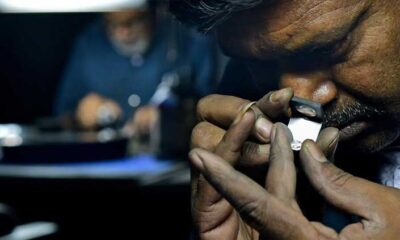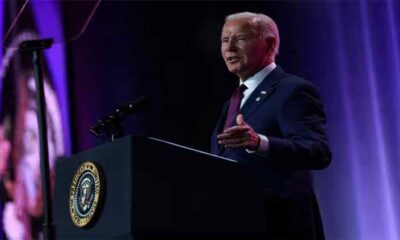Six-year-old tracker dog Wilson, who went missing during the ultimately successful, weeks-long search for four missing Indigenous children in the Colombian Amazon, is now the target of a rescue mission himself.
Dozens of soldiers are scouring the jungle for the canine hero that disappeared on duty two weeks ago, with the military having vowed not to “abandon a fallen comrade” who may have found the children long before the rescue team arrived.
As relief settled in following a happy ending to the 40-day odyssey of Lesly (13), Soleiny, (9) Tien Noriel (5) and one-year-old Cristin, Colombians have been clamoring on social media for the safe return of Wilson as well.
#Let’sGoForWilson, #OneIsMissing and #WilsonNationalHero are some of the tags doing the rounds.
Colombians have also taken to placing posters in their windows to insist: “Missing Wilson,” while others are posting photos of their cats and other pets carrying signs pleading for the dog’s safe return.
“The search is not over,” the army insisted in a statement issued after the children were located last Friday, adding more than 70 soldiers remain deployed in the dense jungle to find the Belgian Shepherd.
They include Cristian David Lara, Wilson’s handler since he was a puppy in training.
Lara, a colleague told the El Espectador newspaper, “does not want to leave until he finds his dog.”
Added General Pedro Sanchez, who headed the search for the children: “We’re going for Wilson, we’re going to bring him back.”
Wilson was the one to find Cristin’s discarded baby bottle in the thick vegetation some four kilometers (2.5 miles) from the wreckage several days after the May 1 small aircraft crash that claimed the lives of all three adults on board, including the siblings’ mother.
As the weeks passed, a team of nearly 200 soldiers and Indigenous jungle experts accompanied by several dogs kept finding signs that the kids were alive: half-eaten fruit, discarded diapers, makeshift shelters and footprints.
Then, two weeks ago, “due to the complexity of the terrain, humidity and adverse weather conditions” Wilson must have become “disoriented” and disappeared, the military said in a statement.
After his human comrades lost sight of Wilson, however, evidence emerged that he may have been the first to find the children: a dog’s footprints were spotted near those of the children shortly before the rescue team got to them.
The two older children, Lesly and Soleiny, have since made a drawing of a dog next to a river and amidst trees.
Astrid Caceres, director of the Colombian Family Welfare Institute overseeing the children’s convalescence, said they keep talking about a dog.
Lesly “told us… of a dog that they had lost, that they didn’t know where it went, that it had accompanied them for a while,” she recounted.
The Colombian army has trained more than 17,000 dogs during decades of internal conflict in specializations including explosives detection, demining and search and rescue.
Apart from wild animals, insects and continuous rain in the Amazon, Wilson also risks encountering members of armed groups who remain active in the jungle, fighting over drug and other illegal commerce.
Sanchez said Wilson had not been equipped with a GPS tracker to prevent “the enemy” from locating him and his human comrades.
In Bogota, homemaker Nora Villa, 55, was one of those closely following the fate of the dog.
“Please, may they do everything possible to find Wilson the doggie!” she told AFP on a city street.
On the day of Wilson’s disappearance, the military had vowed on Twitter to “never abandon a fallen comrade on the battlefield.”
The search for the children, dubbed Operation Hope, would continue “in the search for our canine Wilson, who… in his eagerness to find the children, got separated from the troops,” it said.
Post Views: 85


 Fashion3 months ago
Fashion3 months ago
 World3 months ago
World3 months ago
 World3 months ago
World3 months ago
 Sports2 months ago
Sports2 months ago
 Sports2 months ago
Sports2 months ago
 World3 months ago
World3 months ago
 Tech3 months ago
Tech3 months ago
 Business2 months ago
Business2 months ago






















